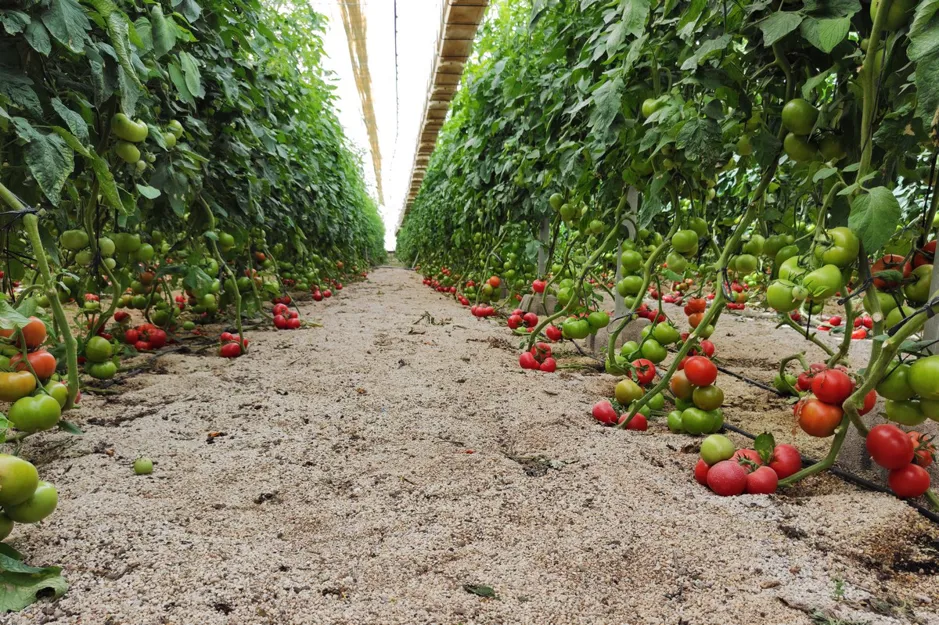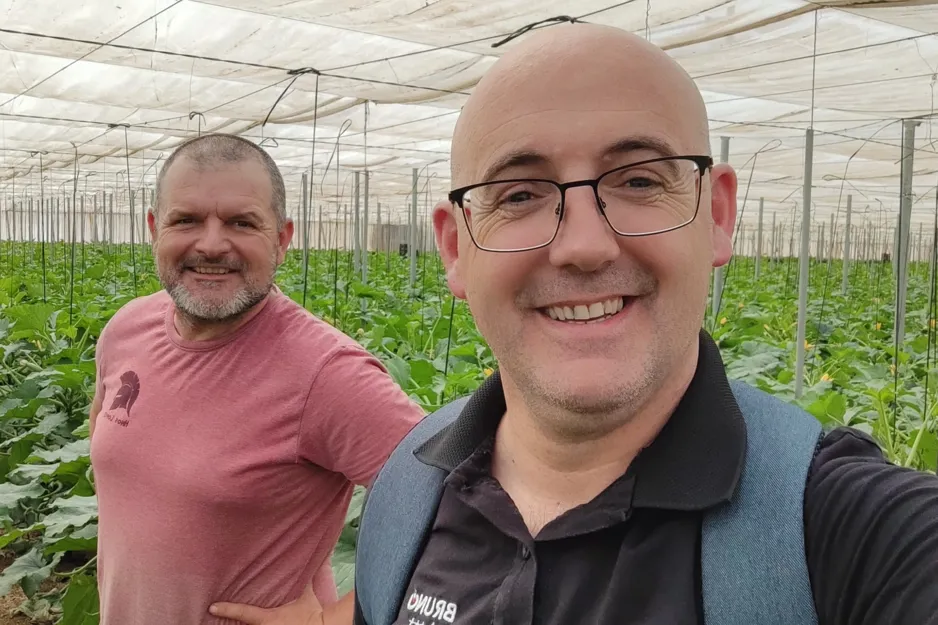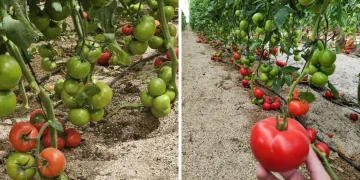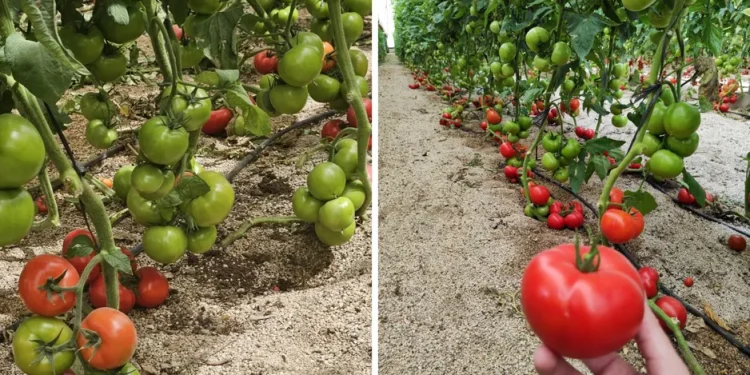Promising Results from Turkish Trials Highlight New Opportunities for Local Tomato Growers
In a significant development for the tomato cultivation industry, Manier Seeds recently held a comprehensive demonstration in El Ejido, Almeria, showcasing their new line of tomato varieties that are resistant to the Tomato Brown Rugose Fruit Virus (ToBRFV). This event highlighted the successful outcomes of trials conducted in Türkiye and their potential applications for growers in Spain.
Successful Trials and Promising Results
The event, which took place in the heart of Spain’s agricultural hub, Almeria, featured an array of tomato varieties tested for their resistance to ToBRFV. This virus, known for causing severe fruit deformities and substantial losses in tomato crops globally, has been a major challenge for tomato producers. However, the new varieties introduced by Manier Seeds are showing strong resistance to this debilitating disease.
During the trials, several tomato types were presented, including loose type tomatoes, cluster types, pink types, and Marmande types. Each of these varieties demonstrated notable resilience against ToBRFV, a testament to the rigorous research and development efforts carried out by Manier Seeds in Türkiye. The trials offered a detailed look at how these varieties perform under real-world conditions, providing valuable insights for local growers.
A technical expert from Manier Seeds remarked, “Our research and development efforts in Türkiye have truly borne fruit here in Spain. The resilience of our tomato varieties against ToBRFV is an important tool to fight the virus.” This statement reflects the company’s confidence in the effectiveness of their new tomato varieties and their commitment to addressing the challenges faced by tomato growers.

Collaborative Dialogue and Knowledge Sharing
The event also served as a platform for collaboration and knowledge exchange among the participants. Attendees included representatives from local cooperatives, independent growers, and technical experts, all of whom engaged in discussions about best practices for managing tomato crops. Topics covered included efficient irrigation strategies, integrated pest management, and techniques for maximizing yields sustainably.
One representative from a local cooperative expressed enthusiasm about the new tomato varieties, stating, “The resistance of these tomatoes to ToBRFV is impressive. We are excited about the potential these varieties hold for our future harvests.” This sentiment highlights the optimism within the local farming community regarding the new opportunities presented by these resilient tomato varieties.
Future Plans and Extended Trials
Looking ahead, Manier Seeds plans to extend their trial activities in the Almeria region. Future efforts will focus on evaluating the performance of these tomato varieties across different environmental conditions and further assessing their disease resistance and yield quality. By broadening the scope of their trials, Manier Seeds aims to ensure that more growers in the region can benefit from these advancements.
The company’s future plans include expanding their research to include additional locations and continuing to develop innovative solutions for pest and disease management. This proactive approach underscores Manier Seeds’ commitment to supporting the agricultural community through both short-term solutions and long-term research initiatives.
Implications for the Tomato Cultivation Industry
The successful demonstration of ToBRFV-resistant tomato varieties in Spain has significant implications for the tomato cultivation industry. For growers, the introduction of these new varieties represents a valuable opportunity to mitigate the risks associated with ToBRFV and improve crop resilience. Additionally, the knowledge shared during the event can help farmers enhance their overall crop management practices.
As the industry continues to face challenges from pests and diseases, the work being done by Manier Seeds provides a hopeful glimpse into future solutions. The emphasis on both disease resistance and sustainable cultivation practices reflects a broader trend towards more resilient and efficient agricultural systems.
































